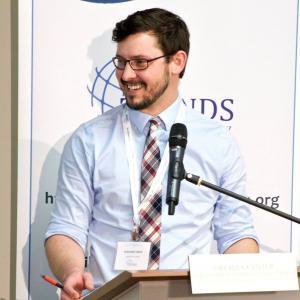Orfalea Center Researchers
Lasse Lindekilde, Aarhus University, Visiting Scholar, Department of Communication and The Orfalea Center for Global & International Studies, UCSB
Michael Stohl, Professor of Communication and Director of the Orfalea Center for Global & International Studies
Scott Reid, Professor of Communication, UCSB
Abstract: The project investigates enclave groups and when and how enclave deliberation leads to extremism. By integrating insights from sociological and political studies of group radicalization with social-psychological experiments of group-communication and group-polarization the project the project seeks to gain greater insight of the effect of deliberation in so-called ‘echo rooms’ (face-to-face as well as online) on extremism, measured as attitudes and willingness to act on such attitudes. The project will employ deliberative experiments to investigate the effect of variables such as ideology, individual resilience, group composition, deliberation media, and moderator role on extremism.
Project Objectives, Questions and Relevance
Studies of extremist groups like Brigate Rosse in Italy or the Weathermen in the US have found that enclosed group deliberation may legitimize violence by dehumanizing enemies. Similarly, recent studies indicate that deliberation in closed forums on the Internet may lead to extremism. However, our understanding of when and how deliberation among likeminded people – enclave deliberation – leads to extremist attitudes and willingness to act on such attitudes, ultimately through violence, has been hampered by the lack of methodologically rigorous studies and insufficient theorization of underlying mechanisms. The overall research question of the project is therefore: When and how does enclave deliberation lead to increased extremism in terms of attitudes and willingness to take risks in acting on such attitudes?
Building on previous studies and their limitations, this research project pursues three objectives. First, the project will integrate theoretical insights produced in separate fields of literature, namely social-psychological theories of inter-group communication and group polarization and political sociological theories of radicalization. This will provide a novel theoretical foundation for formulation of hypotheses for testing.
Secondly, the project will test these new hypotheses concerning when and how enclave deliberation leads to extremism. Ideology, individual resilience factors, group composition, deliberation media (face-to-face, online), visibility of in-group/out-group distinctions and the role of counter-argumentative interventions are among the variables to be investigated.
Finally, this project will test the utility of deliberative experiments as an approach to the study of radicalization, namely, deliberative experiments. The project will seek to maximize internal validity, making use of experimental design to isolate the causal effects of experimental variables, controlling through randomization for a number of relevant third variables. Bringing such rigorous causal analysis into research on radicalization is promising, as thus far the studies have been dominated by case studies and lack of systematic empirical data.
The projects aim is to foster new empirical insights of acute relevance not only to scholars but also to a range of authorities (school teachers, social workers, police officers, civil servants etc.) engaged in radicalization and prevention work. There is among practitioners in this field a demand for more evidence-based policies, not least with regard to understanding and identifying the drivers of group polarization – offline as well as online, and among different ideological groups.
Project Organisation, Workshop and Network
The project will run from August 1 2014 to August 1 2015, and is funded by The Danish National Research Council (The International Network Program) and the Carlsberg Foundation. The project will be undertaken The Orfalea Center of Global and International Studies and the Department of Communication at the University of California, Santa Barbara (UCSB), with input and guidance from Professor Michael Stohl and other faculty members at the Department of Communication with expertise in the field of social-psychological theories of group communication and conducting group experiments.
The project’s first UCSB-based workshop, ‘Group Attitude Formation, Group Centrism and Extremism’, was held at the Orfalea Center on November 14, 2014.





